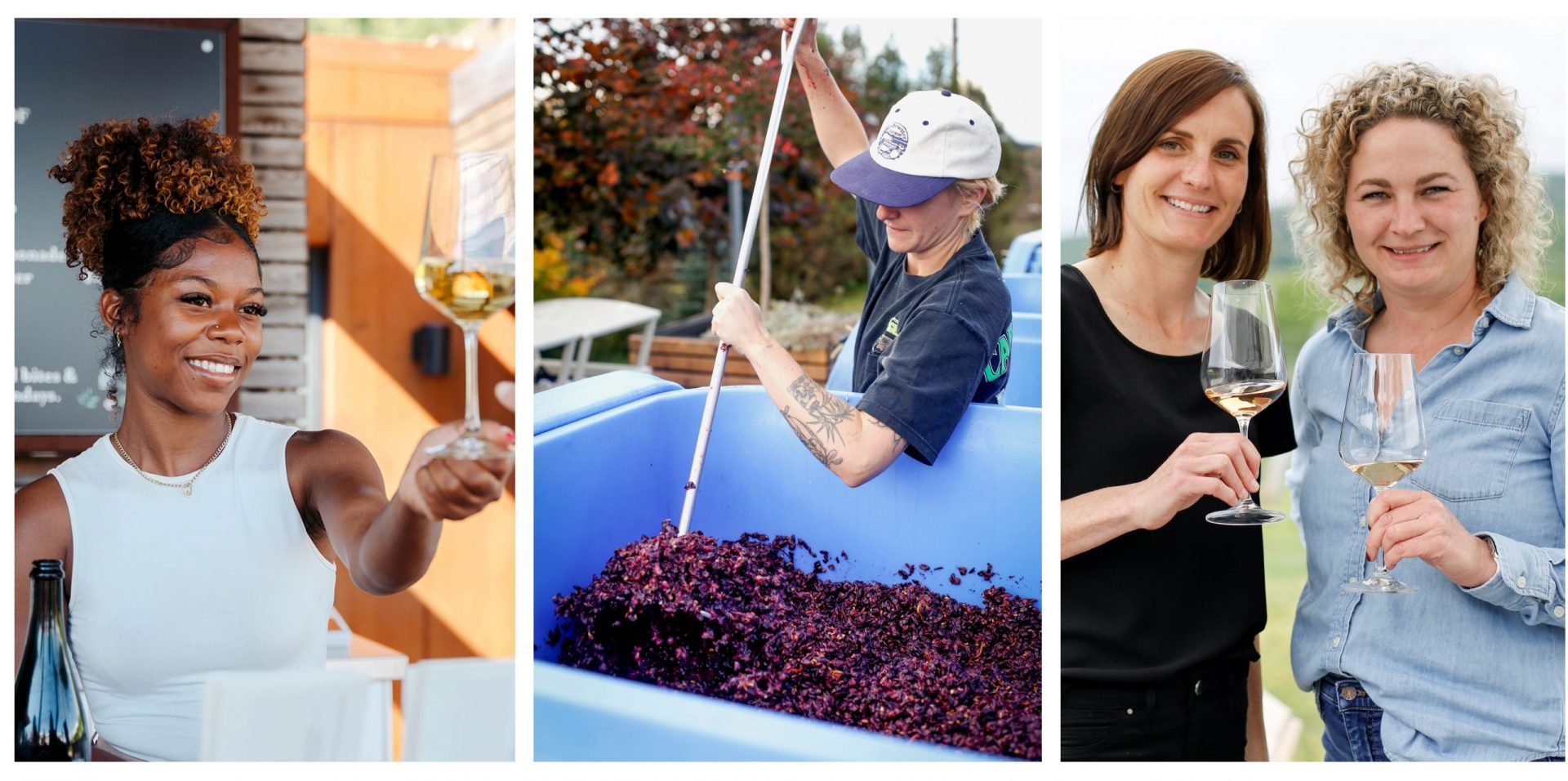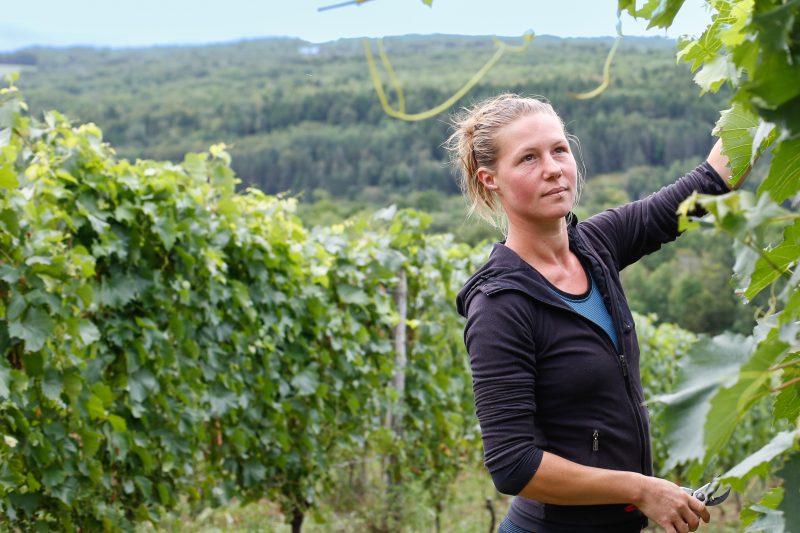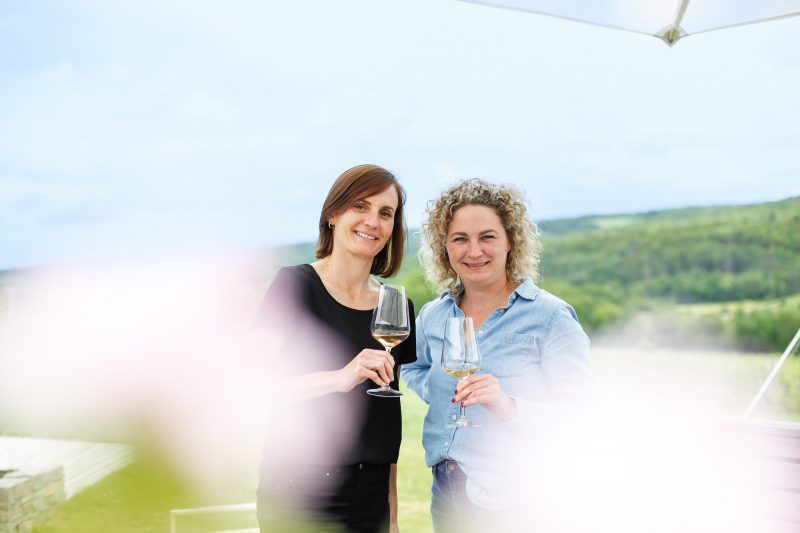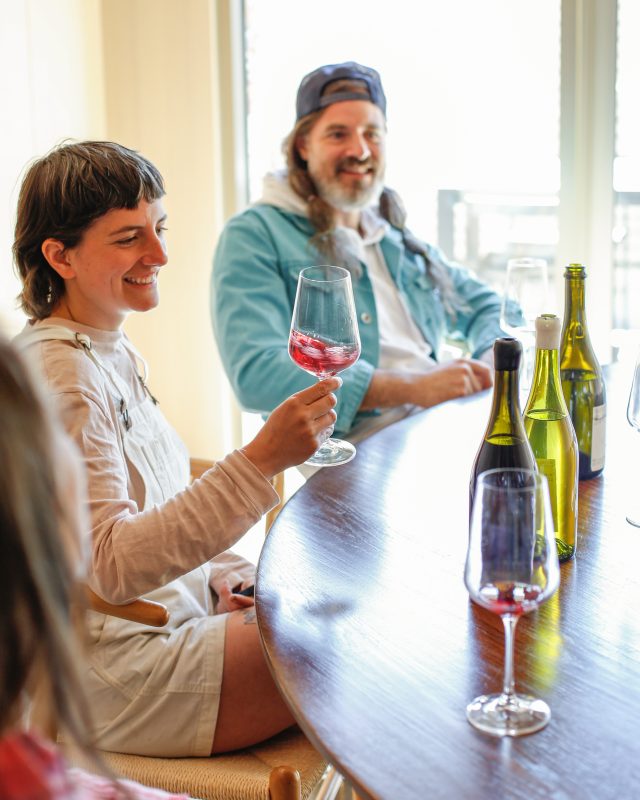Benjamin Bridge Implements Four-Day Work Week

Benjamin Bridge (BB) winery has long been known for being progressive. I had an insightful conversation with Ashley McConnell-Gordon (AMG), proprietor, and Jean-Benoit Deslauriers (JBD), head winemaker, about their latest initiative: the four-day work week. I’ll let you read for yourself, but as a spoiler, I can say that I walked away inspired and in even more awe of them and their work.
The four-day work week concept for BB was a reaction to what came from the difficult years of the pandemic, a response to the burnout and disconnection that was the norm for so many. We talked about this, the challenges to implement the plan, and the metrics and benefits seen so far.
The pilot started with the winemaking/production team. According to AMG, “it’s where it kicked off [in summer of 2022], before we assessed at the management level if we could take the challenge and apply it to each department, including the vineyard team. The result was tremendous… they really felt that it gave them renewed sense of purpose when they were on the ground and the opportunity to decompress when they were not, and (it) upped their overall wellness.” BB quickly saw how this could apply to all departments and just after the harvest, they were able to fully move all teams to the model.

We talked about what the typical year looks like for BB, AMG explains, “for us, one of Benjamin Bridge’s mandates is to employ in a full-time, permanent position as many people as possible. We don’t shut down after the typical tourist season in the shoulder seasons, [instead] aiming for 365 days a year, so we can keep a core group of our team going. We believe a sustainable agri-tourism business must take care of all seasons. It is a full-year business, with different highs and lows.”
Given these highs vs lows, their previous response was to give substantial amounts of time off in the respective low seasons. AMG: “What we learned is that because we are trying to be a 365 day a year business, key groups of people [were often] absent.” This did not give them the best opportunity to meet unscripted challenges, and times of burnout were still present. A noted benefit of the four-day week and year-round model is that the team always has a full tank. AMG notes, “it allows people to pivot, to be strategic and to be more resilient when they encounter challenges and opportunities.”
With respect to significant changes to operations to facilitate the move, communications needed to change early on; AMG: “how we communicate internally and externally has had to change, and we have to be clear that we aren’t going to let the customer experience suffer as a result of our choices. [For internal use] [w]e wrote a policy to manage our own behaviors because we have a tendency to just reach out, assuming someone was working; we’ve had to be more mindful of that and respect the boundaries [of someone’s day off]. The other side is managing customer expectations; because we want to be a high-touch service and be excellent at what we do.” The work is being done so that the customer has the same service as they had before, and BB is actively talking about its four-day work week shift with its base; AMG: “the response has been incredible. We didn’t expect the response we received, but people can really resonate with the pressures of what our team felt coming out of the pandemic and the need to build some boundaries.”

As the model began after harvest completed, the biggest challenge lays ahead with its functionality for the viticulture team. JBD: “vineyard, obviously it is very complex because of Mother Nature and these climatic intangibles that may not collaborate with the existing schedules. Creating a schedule in advance for something that is so weather dependent” creates challenges to maintaining 36 hours per week. The viticulture team drives the work, as JBD reflects, “they are the practitioners who want to work the most during the climatic windows of opportunity, they are the ones insisting to be out dealing with urgencies.” So, to look at the big picture, AMG: “If we zoom out on a season, is the spirit and are the hours consistent with what the four-day work week is about, and how do our teammates feel?” The metrics shift a touch, but the intention of preserving health and well-being of the team and the business remain.
Of course, they have put a BB spin on this model. Each team member has accumulated hours per month paid by BB, but spent on their choice of volunteer role out in the community. This comes back to the need to build resiliency and sense of connection, and according to JBD, “the act of volunteering can have the added benefit of putting things into perspective.” This part had a great buy-in from the team, and I’m personally looking forward to checking in again to see how this part of the project manifests.

Some aspirations from AMG: “I want BB to be transformative, in a sense that when people look at the Nova Scotia wine region, or us as a rural business and what it means to be in farming, that we are doing something different, that maybe we can change things for the better.”
JBD: “people are excited to participate in an employment dynamic that is very evolved, and there is this act of participating in something that we feel is also going to define our product. The right to profit, that’s a notion that is changing… I don’t know that customers are excited to participate in someone’s accumulation of wealth, [instead] they want to encourage operations that are beneficial to the community and beneficial to the people that work there.”
